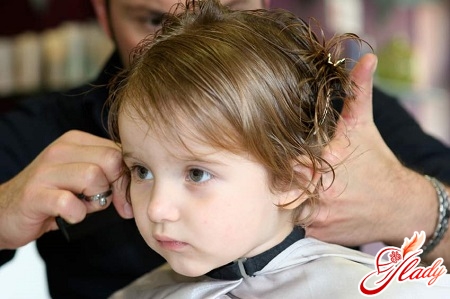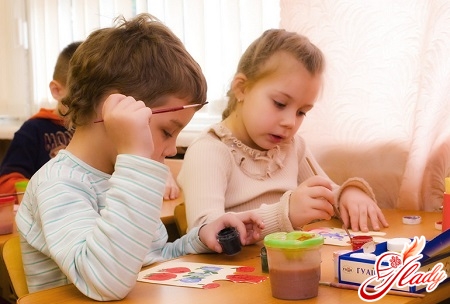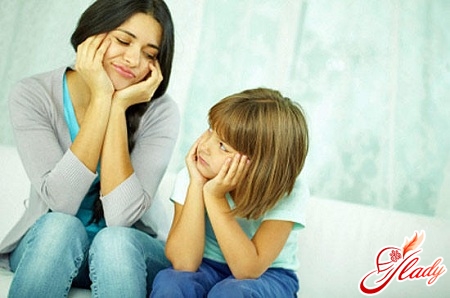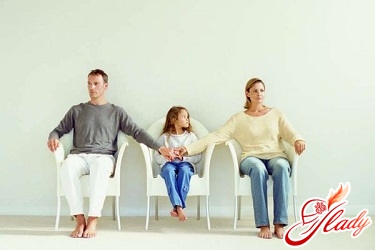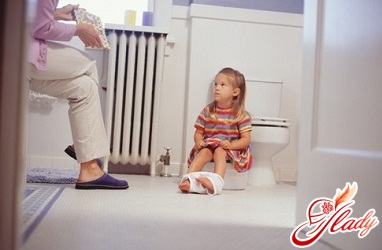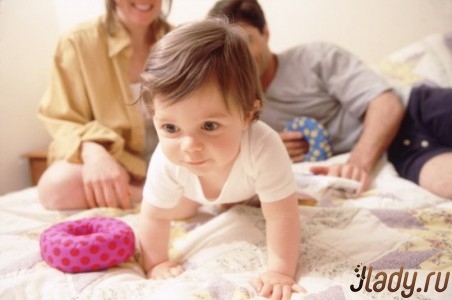 If the doctor puts the child to a diagnosis"Vegetosovascular dystonia," then along with regular observations and treatment, a special sparing regimen will be recommended. What is it and why it is so important to observe it? Often vegeto-vascular dystonia is called a "ghost disease" because it can exist completely unnoticed. According to statistics, from 20 to 45% of preschool children have such a diagnosis. But these are only those children, whose individual manifestations were very noticeable and forced parents to see a doctor, or those who had the disease discovered by accident. In many cases, the symptoms do not cause special concern, and if they are delivered, they are regarded as manifestations of character or the influence of the environment. The child reacts to changes in temperature, is capricious and does not sleep well during the rain. Or the baby's chin trembles, and he hardly calms down. Or he blushes and sweats during active games. Or he often suffers from colds when he starts to go to the kindergarten. All these and other manifestations (regurgitation in infancy, unsteady sleep, propensity to allergies, fearfulness, low adaptive capacity) find rational explanations: "I also slept badly in childhood, it was passed on from me", "Yes, we have all the family reacts so much to the weather. " Active calls to the doctor and treatment often begin at the age of 6 - 7 years, when the increased fatigue, the inability to keep attention, the intolerance of training loads becomes obvious. But treatment is not always successful. The second "nickname" VSD - "stepdaughter medicine." It is a little isolated, lives by itself. Can manifest at an early age, and then stop worrying, or maybe stay for life. May be amenable to short-term treatment, or may require all new methods. And all because an important role is played by psychological factors. The conditions of life, the situation in the family, the emotional mood - all these are also "medicines" when it comes to the violation of the activity of the autonomic nervous system.
If the doctor puts the child to a diagnosis"Vegetosovascular dystonia," then along with regular observations and treatment, a special sparing regimen will be recommended. What is it and why it is so important to observe it? Often vegeto-vascular dystonia is called a "ghost disease" because it can exist completely unnoticed. According to statistics, from 20 to 45% of preschool children have such a diagnosis. But these are only those children, whose individual manifestations were very noticeable and forced parents to see a doctor, or those who had the disease discovered by accident. In many cases, the symptoms do not cause special concern, and if they are delivered, they are regarded as manifestations of character or the influence of the environment. The child reacts to changes in temperature, is capricious and does not sleep well during the rain. Or the baby's chin trembles, and he hardly calms down. Or he blushes and sweats during active games. Or he often suffers from colds when he starts to go to the kindergarten. All these and other manifestations (regurgitation in infancy, unsteady sleep, propensity to allergies, fearfulness, low adaptive capacity) find rational explanations: "I also slept badly in childhood, it was passed on from me", "Yes, we have all the family reacts so much to the weather. " Active calls to the doctor and treatment often begin at the age of 6 - 7 years, when the increased fatigue, the inability to keep attention, the intolerance of training loads becomes obvious. But treatment is not always successful. The second "nickname" VSD - "stepdaughter medicine." It is a little isolated, lives by itself. Can manifest at an early age, and then stop worrying, or maybe stay for life. May be amenable to short-term treatment, or may require all new methods. And all because an important role is played by psychological factors. The conditions of life, the situation in the family, the emotional mood - all these are also "medicines" when it comes to the violation of the activity of the autonomic nervous system.
Reduce load
Reduce the load. This is perhaps the most important point in the recommendations of psychologists, because the most common symptoms of VSD are in children, whose life from early childhood is painted by the minute. "What can be a foreign language for young children? Surely they are in the form of a game. So, this is not a load, but entertainment, "the parents reason, and without a doubt lead the child to school. But for three, five-year-olds, even such gaming lessons are work. Especially if they pass after the kindergarten, where there is also an academic clock and have their own (they also seem to us gaming) loads. Even the change of one team to another during the day for the baby is difficult. Therefore, no matter how you would like to develop a child as soon as possible, give him as much knowledge as possible, prepare for school, yet get yourself together. Proposals in this area are now the most tempting, but parents, choosing schools, groups and sections, should clearly know the answers to the questions "What does this give my child?", "What will it take from my child?". Remember that the opportunities for children are different, and if the daughter of your friends successfully deals with three sports and goes to an early school, this does not mean that your child can do the same. In any case, without effort and with the same joy. Sports for children with the VSD is useful. But it's better if he is in the game, and not in a competitive mode. Situations of contests are often strongly experienced by children, can even reduce interest in the activity itself. Later, when the child grows up, he can take it more calmly and even find interest in competitions, but for small children it's more simply physical exercises, recreational activities in nature, in the pool. It is also necessary to avoid traumatic, "aggressive" sports - boxing, wrestling, hockey. But swimming, skiing, running fit perfectly and even recommended to children with such a diagnosis. Limit the load of any kind should be in early September - if the child goes to kindergarten or already to school. It is at this time that the child, because of the changed regime, increasing responsibility, there are malfunctions in the work of the nervous system. Nausea in the morning, headaches, periodic fever, pallor, bags under the eyes - manifestations of the so-called "September 1 crisis." Organize a quality rest of the child, so that the beginning of a new school year in kindergarten or school was successful. But quality - does not mean saturated. Entertaining activities, socializing with friends, hiking in a cafe and a movie - such activities should also be dosed. The younger the child, the more "modest" his leisure should be. In his schedule there must be a line "do nothing". Doctors and psychologists of the old school with all disorders of the nervous system recommended therapy with family walks. This advice can be used now. In the evening, before going to bed, parents go out with the child. They spend 20 to 30 minutes walking along the streets, not going anywhere. Parents talk among themselves, and the child walks between them, holding both hands (at the end of the walk literally hangs on them). After that, wash and sleep. Well, you can read a couple of pages of a fairy tale. TV and computer - none! By the way, such conditions will allow adults to improve their mental health.
Family - household therapy
And do it so that everything in the family wasquietly. That adults loved each other and the child, that all was well and cozy. No, it is very difficult to give such a recommendation. She is impossible. If there are no truly harmonious relations in the family, then they are unlikely to arise consciously, because "the doctor ordered". But family conditions are an important factor in successful treatment. Moreover, in families that are well off from a psychological point of view, even the probability of the disease will be much lower. In addition to hereditary - constitutional factors, injuries and pathologies in early childhood and before birth (lack of oxygen in the fetus during pregnancy), there are also psychoemotional ones. Unfavorable events that change the life of the family for the worse, education in conditions of constant tension, conflicts - all this also affects the work of the vegetative system. Moreover, hidden conflicts are no less dangerous because children are very sensitive and still worried if something is wrong in the family. For example, the situation in the family is on the verge of divorce. Parents, worrying about the health of the child, decide while to wait - especially since the quarrels preceding the decision to leave, for all have not passed without a trace. "Let's live together while the child calms down, will come back to normal." But the child in such conditions is unlikely to be better. After all, kind, warm and sincere relations still will not appear, and it will be unconsciously fixed by them. Or another situation. Parents have already parted, but Dad wants to participate in the upbringing. He comes every week, takes the child to himself and returns the next day. It would seem that everything is perfect. However, often in such relations there is an element of rivalry, the desire to win the dispute "who is the best parent", and this also leaves its imprint. Mom, after returning, tortures the child, demanding a minute report on the time spent (in order to be able to reproach the ex-husband later than that), the dad with a predilection finds out with whom Mama spends evenings. And sometimes grandmothers from both sides are connected. In general, sometimes such a "peaceful resolution of the situation" is so stressful for the child, which in itself provokes the emergence of a variety of disorders. "Every Friday morning, Eureka has a temperature. And so for several months now. We both went to doctors and psychologists. "This is a reaction to negative events, anxious anticipation," they told us after the survey. Of course, anxious. After all, on Fridays, his father takes him. His new wife persistently establishes contact between her children and ours, and Yurik in this company is the youngest. I can not say that he is offended there, but he does not feel very comfortable there. Returns then with nausea, then with a headache. I would not give it away at all, but what would they think? Reshat that I'm just out of jealousy ... ". Of course, it is impossible to create ideal conditions. Yes, in principle, they should not be so - a small level of stress even strengthens mental and physical health. However, it is still worthwhile to exclude especially traumatic situations. Keep in mind: children get used to any state of affairs (parents' divorce, living with a grandmother, moving), if there is at least one person near by, which provides a sense of confidence and love. Even an incomplete and financially not completely prosperous family can be harmonious, if this single parent is adequate to the needs of the child, can give a sense of security and surround with warmth.
Picture disease
What did you say to your child when you left the doctor? What do you say about his illness now? This is also important. This is how the internal picture of the disease is formed-that is, how the person himself presents his disease. And from her, in turn, depends largely on the success of recovery. "All my childhood I was sure that I was seriously ill. I could not run fast, eat ice cream and stay in draft. You could not watch TV for a long time, somersault over your head and even cry. "Stop, now you will get worse," my grandmother said, wiping my tears. When I was playing on the street, my grandmother always warned children not to throw sand at me and push me: "Olechka is sick with us, be more careful with her." It's even strange that children played with me at all. " Such a super-caring attitude can lead to psychological disability. A child in such a situation can learn for a long time that he is not like everyone else, that his life should be full of restrictions and that to him all should be treated with the same care and reverence. In the future, this can complicate not only professional, but also personal life. Threats, gloomy warnings are also not the best option for behavior. It will frighten, will inspire alarm for the condition. Often the direct path to neurosis begins here. Blame for the disease, instill a sense of duty ("How much time do you spend, constantly on the doctors run") is absolutely unacceptable reception. In addition, the sense of guilt in early childhood is then often replaced by aggression, but not gratitude. In general, the less you talk about the disease, the less it is discussed with the child, the better. This, of course, does not mean that he should not know about the problems at all. But, discussing them, you should not focus on the limitations, the need to take medication and so on. Do not say: "How terrible it is", "It's the same as it happened" and "What is to be done now?". The attitude towards the disease must be calm and rational. Yes, it happens. All people someday get sick, and they need to go to the doctor, but this does not mean that they are deprived of something in life. There are many classes that are available and as interesting as those that are not yet recommended. This idea will help to look more optimistically at one's state and now it will serve well if necessary later in adulthood.




